Research Contribution
a) AUH strategic plan emphasizes the pursuit of relentless groundbreaking research in pursuit of sustainable development with significant global impact. The university’s research efforts are geared towards addressing societal needs and designing innovative intellectual property that contributes to the sustainability goals of both rural and urban communities.
To support these efforts, the university provides robust resources and infrastructure to encourage research among its faculty members. Additionally, faculty have secured major grants from key government agencies as stated below:
- Dr. Sarika Jain, Associate Professor at the Amity School of Applied Sciences, has been awarded a project titled “Development of High-Resolution Future Climate Scenarios for the NCR Region under Climate Change and Urbanization” by the Department of Science and Technology (DST) through the SERB SURE grant scheme, amounting to ₹22,40,000. This research explores climate change and urbanization's effects on the region, offering insights for sustainable policy and health assessments.
- Dr. Manoj Kashyap of Amity Medical School received an extramural grant from the Indian Council of Medical Research (ICMR), New Delhi (Ref #2020-3471), for a project titled "Differential Inhibition of Visfatin-PAK4 as a Novel Strategy in Esophageal Squamous Cell Carcinoma for Therapeutic Purposes," amounting to Rs. 48.5 lakhs. The Molecular Oncology Laboratory (MOL) conducts advanced research in oncology and regenerative medicine, using molecular biology to identify cancer biomarkers and dysregulated RNA splicing for targeted therapies.
- Dr. Ravi Dutt Sharma at Amity Institute of Biotechnology has been awarded a project on – “Identification of early diagnostic biomarkers for GBM using differential Alternative Splicing and deep learning” by ICMR, (BMI/12(67)/2022 amounting to Rs 18.25 lakhs. Glioblastoma, a highly aggressive grade IV glioma, faces poor prognosis despite advances in surgery and therapy. Next-generation sequencing and deep learning offer new hope for identifying biomarkers and improving treatment strategies.
b) Faculty members are provided with infrastructure support for establishing project research labs such as Biomaterials and Biostructure Mimicking Lab for Ph. D scholars under Dr Deepa Suhag.
c) Research highlights AUH: In the calendar year 2023 alone, faculty members published 429 research papers in prestigious national and international journals with high impact factors. The details are as under:
Extra Mural R & D Projects
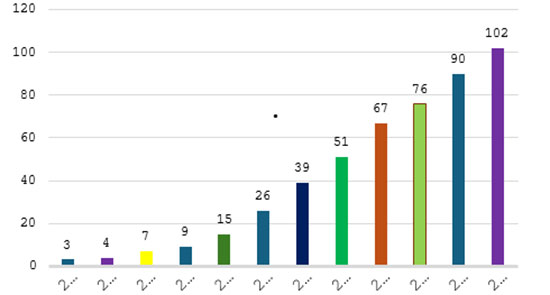
Consultancy Projects
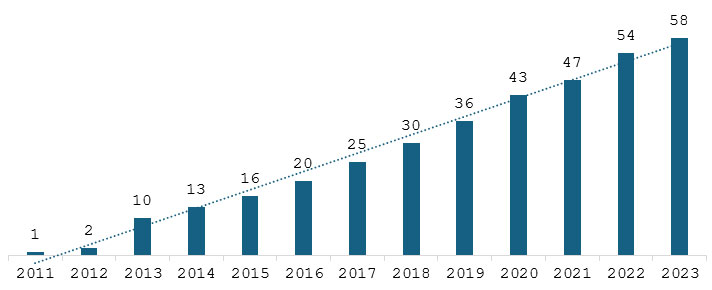
Submitted R & D Projects
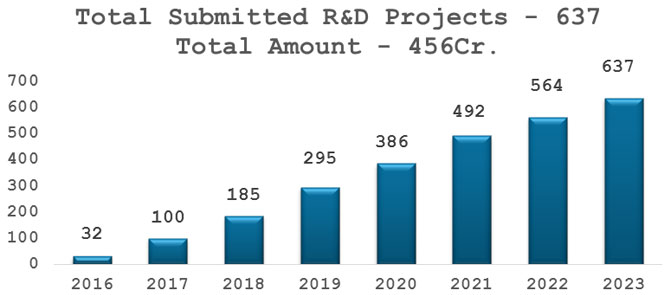
Scopus Listed Publication (2103)
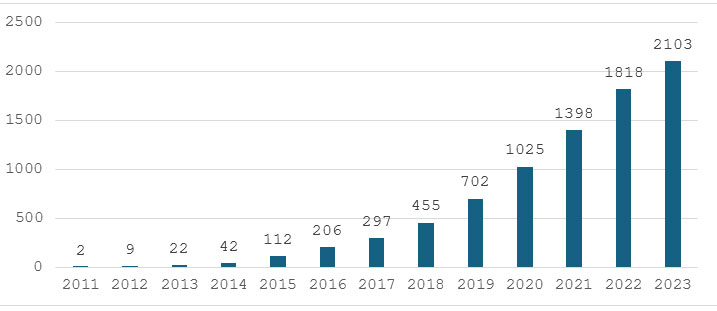
Year Wise Publication
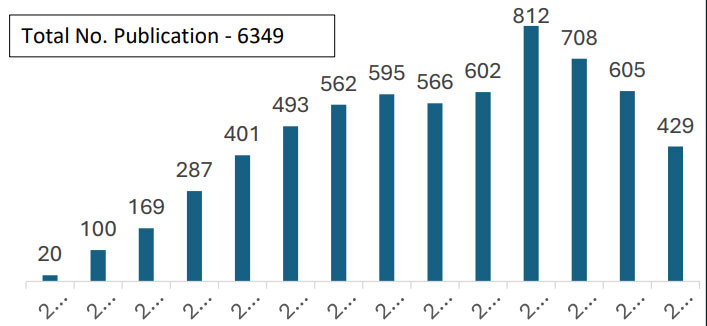
New Articles Book Chapter, Conference Proceeding & Research Article
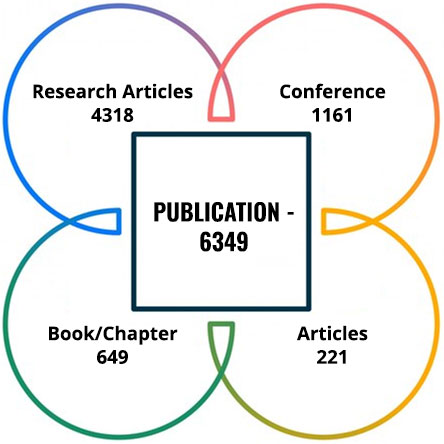
Scopus Citation
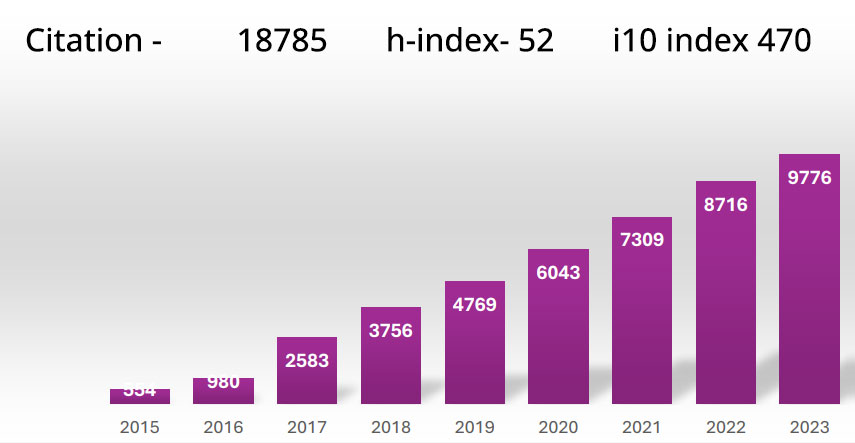
Cumulative Impact Factor
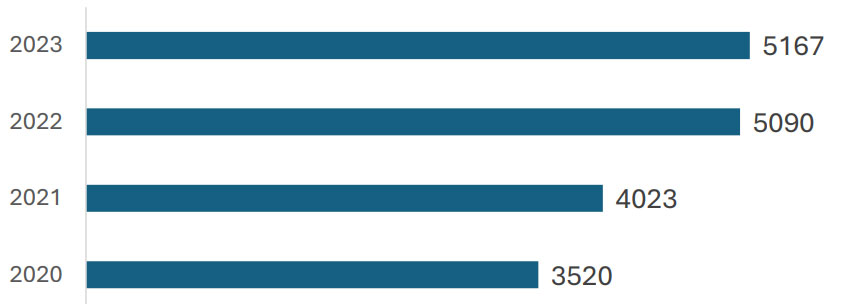
Patents: Published & Filed
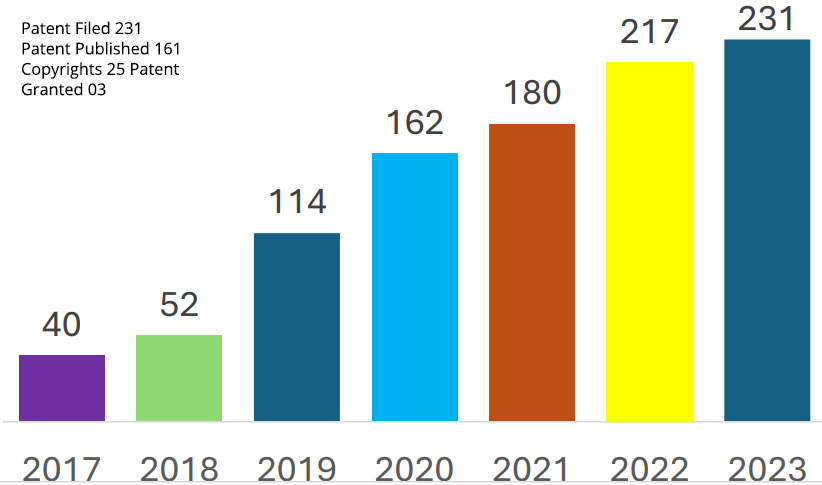
R & D Projects Details Dept. Wise
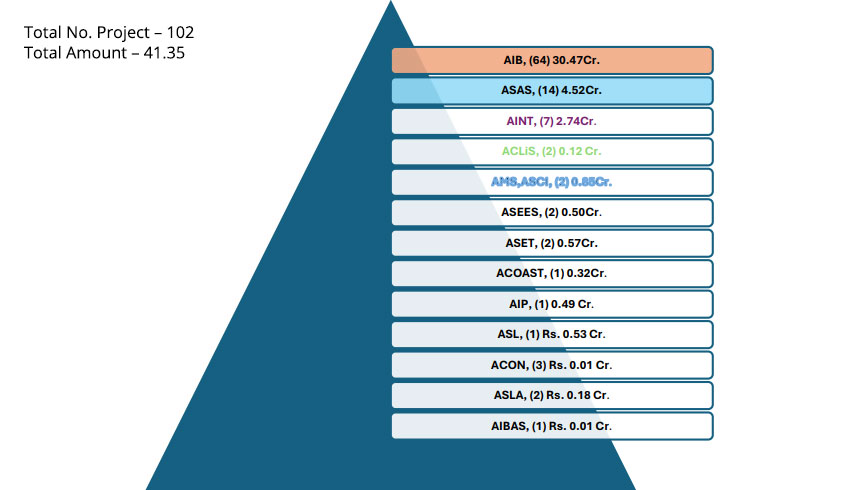
The Seven scientists of Amity University Haryana have been listed amongst the top 2% of most cited scientists in Stanford University’s World Scientists List 2023.

d) Research Highlights of the faculty for societal issues on wellbeing
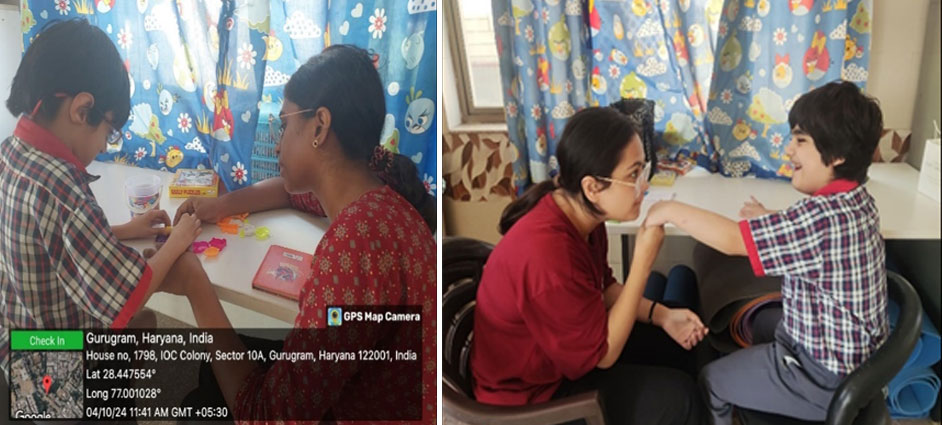
Dr. Vijay Kumar, Associate Professor of Audiology and Speech-Language Pathology, research in language development in children with cochlear implants, focusing on phonological abilities and incorporating artificial intelligence in developmental phonology studies. He also leads early intervention efforts. Recently, he has published a research paper titled, “Assessment of development of phonology using artificial intelligence: A preliminary study” which was published in “Current Material Science” Journal, 17, (2023) DOI:10.2174/0126661454266606231020074225.
e) Besides, Dr Kumar is also investigating impact of hearing loss on emotional and psychological wellbeing of persons with disability. He observed that rehabilitation of hearing loss through hearing aids can restore emotional, social and psychological wellbeing which can lead to better overall quality of life.
Speech therapy session for children with Autism
Learning Disability at Khusboo Welfare Society, Gurgaon,
A center for inclusive education
f) Build and Upgrade Inclusive and Safe Schools a commitment to community & society
Dr. Vijay Kumar’s research explores the socio-cultural aspects of health, revealing that hearing aid users improve social skills faster than emotional well-being, highlighting the need for tailored counseling. The findings were published as “Impact of Hearing Aid Usage on Emotional and Social Skills in Persons With Severe to Profound Hearing Loss” in Journal of Audiology & Otology 27 (1), DOI: 10.7874/jao.2022.00290.
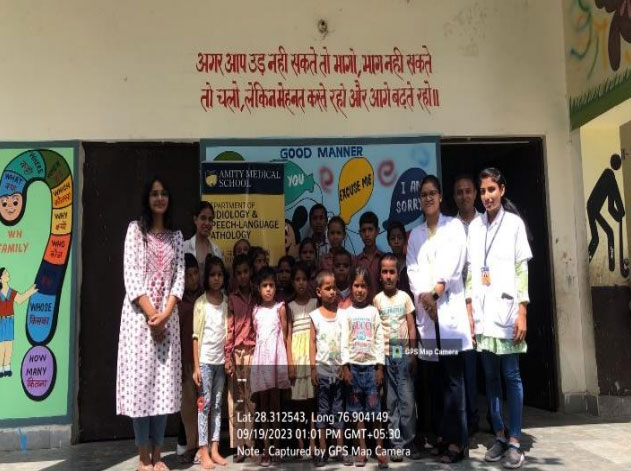 Hearing and speech screening of primary grade children in Govt. Primary school, Panchgaon3.
Hearing and speech screening of primary grade children in Govt. Primary school, Panchgaon3.
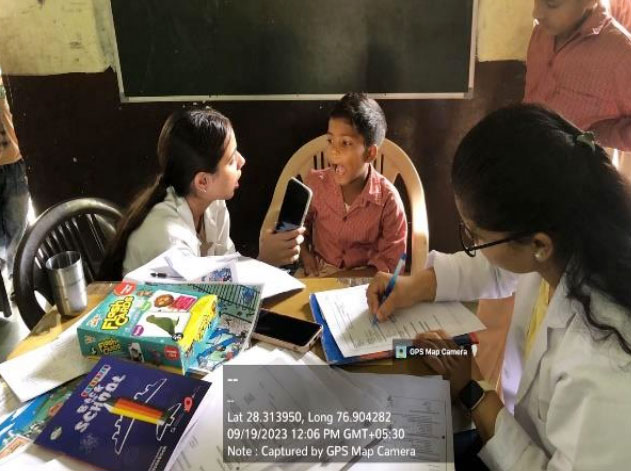 BASLP students are involved in speech therapy session for children with speech-sound disorders to promote inclusive schooling
BASLP students are involved in speech therapy session for children with speech-sound disorders to promote inclusive schooling
g) Research focusing on Sustainable Development Goals:
A few articles published by faculty members in high impact journals are listed below:
- Dalal, S., Seth, B, Radulescu, M., Cilan, T. F. & Serbanescu, L. (2023). Optimized Deep Learning without Forgetting (LwF) for Weather Classification for Sustainable Transportation and Traffic Safety. Sustainability (Switzerland), 15(7), doi: 10.3390/su15076070. Accidents from bad weather highlight transportation vulnerabilities. This research develops a weather classifier using a modified Yolov5 deep-learning model, achieving 99.19% accuracy from single-image inputs for intelligent transportation systems.
- Khan, A.A., Garsa, K., Jindal, P., Devara, P.C.S., Tiwari, S., & Sharma P.B. (2023). Demographic Evaluation and Parametric Assessment of Air Pollutants over Delhi NCR. Atmosphere, 14(9), doi: 10.3390/atmos14091390. This study examines air pollution variability in Delhi NCR from 2019 to 2021, highlighting seasonal changes and COVID-19 lockdown effects on pollutant concentrations.
- Sharma, J., Kumar, V., Prasad, R. & Gaur, N. A. (2023). Engineering of Saccharomyces cerevisiae as a consolidated bioprocessing host to produce cellulosic ethanol: Recent advancements and current challenges. Biotechnology Advances, 561, doi: 10.1016/j.biotechadv.2022.107925. Lignocellulosic biomass, an abundant renewable resource, can produce biofuels via microbial processing. This review explores engineering Saccharomyces cerevisiae for consolidated bioprocessing and addressing challenges in bioethanol production.
- Maheshwari, N., Thakur, I.S. & Srivastava, S. (2022). Role of carbon-dioxide sequestering bacteria for clean air environment and prospective production of biomaterials: a sustainable approach. Environmental Science and Pollution Research, 29(26), 38950 – 3897, doi: 10.1007/s11356-022-19393-7. Rising fossil fuel demand has increased greenhouse gas emissions, primarily CO2. This review explores microbial CO2 sequestration mechanisms and their potential benefits over plant-based methods.
© 2021 Amity University Gurugram. All Rights Reserved.
